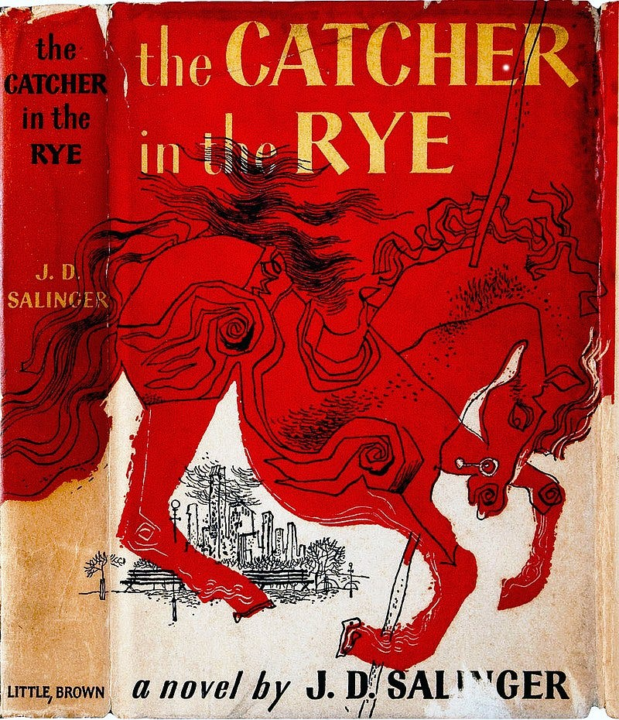Activity
Mon
Wed
Fri
Sun
Feb
Mar
Apr
May
Jun
Jul
Aug
Sep
Oct
Nov
Dec
Jan
What is this?
Less
More
Memberships
Practical Philosophy
614 members • Free
9 contributions to Practical Philosophy
A follow up on authenticity
“It's a hell of a responsibility to be yourself. It's much easier to be somebody else or nobody at all.” ~Sylvia Plath While what Sylvia Plath said is true, I don't think this is the reason why many of us end up being "someone else or nobody at all". The true reason is that our civilisation makes it incredibly hard for you to self-actualize, to become your Self in the first place. So hard, in fact, that -- as I was reminded today at our meeting -- it became one of the tenets of Buddhism to deny the very existence of the Self, to claim that the Self is an illusion. And, again, I don't think that is true either. Every person can become their Self -- only the Self is not something one could find within themselves. Rather, the Self is something one have to put together, piece by piece, on their own. And before they can even start on that task, they must discover that capacity in them -- which, within civilization, can only happen by chance. I mean it's not like we are being told it in school or by our parents, "Hey kid, there is this thing -- your Self -- that you need to piece together. And here is how you do it..." That's why few people stumble on that path, end even fewer complete the journey. One day we will find a way to teach this to every child. But until then, "The world is full of actors pretending to be human." ~J. D. Salinger

0 likes • Sep '24
@Jeff Marr Life can be confusing for sure. What makes it kinda unfair is that understating, the process of it, is similar to piecing together a jigsaw puzzle. The hardest part is to start, finding your first connecting pieces, learning how to do it in the first place... And yes, that is a solitary exercise 'cause you don't need more pieces, you need to figure out how to connect the ones you already have. This is where many people give up. The good news, however, is that the more of the puzzle you complete, the easier it gets -- exponentially easier. The last parts literally complete itself, everything just falls into places, and you'd be like holy crap I can see everything. That's my experience anyway.
On Truth and Lies
Jesus: I came to bear witness to the truth! Pilate: What’s “truth”? If you think the world is a mess (and it is), maybe ask yourself this question: How could it not be if we are still debating things like the nature of knowledge, the meaning of truth, and the meaning of meaning? Of course we are confused. Of course we are often don't know what we are doing and where we are going. If we don't know what truth is, how can we tell it from "lies"? Here is my take -- to know the truth, a person has to complete the puzzle. The clarity comes when everything falls into places -- when you can see it for yourself.
0
0
On Storytelling
“… But the truth comes down in riddles that are safe enough to share.” https://youtu.be/2ueZo5i6GPg This might be the one of the main purposes of storytelling, at least in modern times — to tell the truth in ways that are safe enough to share. Originally though, storytelling was meant as way to stimulate and train imagination, especially in children. Imagination is key to understanding, and that’s why reading books to children is the single best predictor of their future academic performance.
The Good Life
However difficult it may me to define a good life, I think this insight is a key piece to the puzzle: “People are all decent underneath. All that is necessary to prove this is to find out what the motives are for their superficial behavior—nasty, mean, or vicious though that behavior may be. Once these motives are understood, it is impossible to resent the behavior that follows. “The insecurity cycle—from this flows everything. . . . The person who behaves badly behaves so because of hurt, actual and expected, and lashes out in self-defense, as a cornered animal might. The fact is that people are good, if only their fundamental wishes are satisfied, their wishes for affection and security. Give people affection and security, and they will give affection and be secure in their feelings and behavior.” ~Abraham Maslow That’s why, “Love your enemies.”
On Forgiveness
Honestly, I find the whole concept rather unhelpful — if not arrogant. Like, excuse me, but who are you to grant forgiveness to others? To judge whether they deserve it or not? And what’s the alternative anyway? Holding a grudge? ‘Cause that’s real smart — like drinking poison and expecting them to die. I think we owe it to ourselves to learn compassion for everyone. To understand that they are doing their best in face of very difficult circumstances. We can try and help them — not by giving them what they want, but by trying to understand what they need. Or we can turn our backs on them, and pay the price.
0 likes • Sep '24
@Nathan Weidner My main point was that, in the end, there is simply nothing to forgive (though in order to see it, one might need to take a few steps back and look at the big picture). There is nothing wrong with us (except for our not-so-intelligent design). The real problem, however, is that our parents, our society give us precious little guidance on how to live our lives (because no one taught them either). So we are often left to learn what is good for us through trial and error, hurting ourselves and others in the process. This is not ideal, for sure. But this is how it is, and it's not anyone's fault either. "Much anxiety surrounds the question of how good the next generation will be at math; very little around their abilities at marriage or kindness. We devote inordinate hours to learning about tectonic plates and cloud formations, and relatively few fathoming shame and rage. "The assumption is that emotional insight might be either unnecessary or in essence unteachable, lying beyond reason or method, an unreproducible phenomenon best abandoned to individual instinct and intuition. We are left to find our own path around our unfeasibly complicated minds — a move as striking (and as wise) as suggesting that each generation should rediscover the laws of physics by themselves." ~Alain de Botton
1-9 of 9
@yuri-zavorotny-4492
A software engineer turned a cognitive scientist, turned a philosopher, turned a poet ;)
Active 438d ago
Joined Jul 4, 2024
